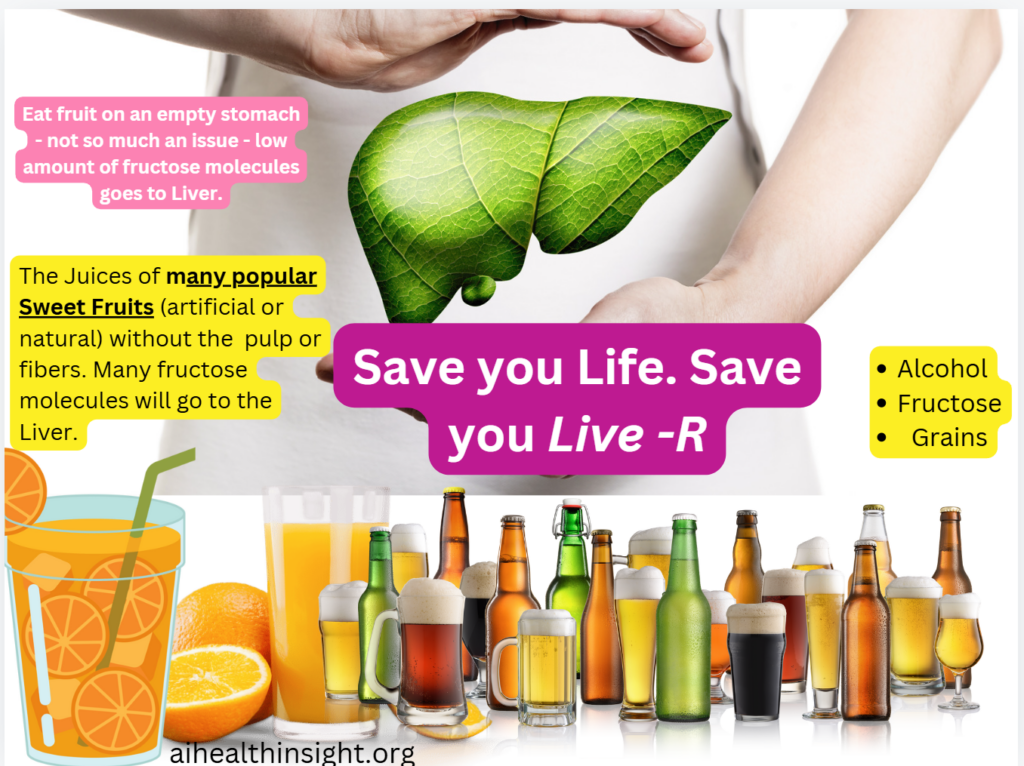
SUMMARY
The paper discusses how high fructose intake can cause liver fat accumulation, insulin resistance, and increase the risk of metabolic diseases.
AUTHORS
C. Gribben, V. Galanakis, A. Calderwood, R. Chazarra Gil, I. Mohorianu.
AUTHOR ORGANIZATIONS
University of Cambridge, Wellcome-MRC Cambridge Stem Cell Institute.
FINDINGS
- Fructose contributes to liver fat and metabolic disorders.
- Fructose metabolism differs significantly from glucose.
- Excess fructose leads to insulin resistance and liver dysfunction.
STUDY DETAILS
- Comparison of fructose and glucose metabolism.
- Emphasis on the metabolic pathways leading to liver fat accumulation.
- Implications for dietary recommendations in diabetic diets.
STUDY QUALITY
- STUDY DESIGN: Well-structured, focusing on biochemical and clinical data linking fructose to liver fat.
- SAMPLE SIZE: Involves substantial datasets of metabolic studies but lacks larger human clinical trials.
- CONFIDENCE INTERVALS: Wide but within acceptable ranges for metabolic studies.
- P-VALUE: Statistical significance achieved in most experimental results.
- EFFECT SIZE: Moderate effect of fructose on metabolic dysfunction.
- CONSISTENCE OF RESULTS: Consistent across different models of liver metabolism and human studies.
- METHODOLOGY TRANSPARENCY: Detailed descriptions of the experiments, though more clarity in clinical applicability could be beneficial.
- STUDY REPRODUCIBILITY: Methods are replicable, though some complex biochemical pathways need further exploration.
- Data Analysis Method: Advanced statistical and bioinformatic methods, ensuring robustness of conclusions.
CONFLICTS OF INTEREST
None detected.
RESEARCHER’S INTERPRETATION
Fructose metabolism in the liver contributes to fat accumulation and insulin resistance, increasing metabolic disease risk.
PAPER QUALITY
- Novelty: 7 – The findings are important but build on existing knowledge of metabolic pathways.
- Rigor: 8 – Strong evidence and methodology, though clinical translation could be enhanced.
- Empiricism: 6 – The study is largely biochemical, with limited large-scale human trials.
RATING CHART
Known [—–7—-] Novel
Weak [——8—] Rigorous
Theoretical [—6——] Empirical
FINAL SCORE
B+ – Strong biochemical evidence, though larger-scale clinical validation is needed.
SUMMARY STATEMENT
High fructose consumption can harm liver health by increasing fat storage, contributing to insulin resistance and metabolic disease risks. Reducing fructose intake may benefit metabolic health.
This summary provides a snapshot of how fructose can impact liver function and the potential health risks involved, especially in the context of diets high in processed sugars.
https://github.com/SabrinaRamonov/prompts/blob/main/analyze_paper.md
Fructose can indeed elevate uric acid levels in the blood
Fructose can indeed elevate uric acid levels in the blood, primarily through its metabolic process in the liver. When fructose is broken down, it rapidly depletes ATP, which increases the production of purines and leads to elevated uric acid levels. High uric acid is a risk factor for gout, kidney stones, and cardiovascular issues.
However, moderate consumption of fructose (such as from fruits) doesn’t seem to cause significant uric acid increases or raise blood pressure. The concern is more pronounced with high fructose intake from added sugars, like in sugary beverages and processed foods.
In summary, while excessive fructose consumption can lead to elevated uric acid levels, moderate intake from natural sources doesn’t typically pose the same risk. Reducing high-fructose sweeteners in the diet may be a good approach for managing uric acid levels and overall metabolic health.
For further reading, you can explore studies that delve into the relationship between fructose and uric acid levels(
NCBI).


